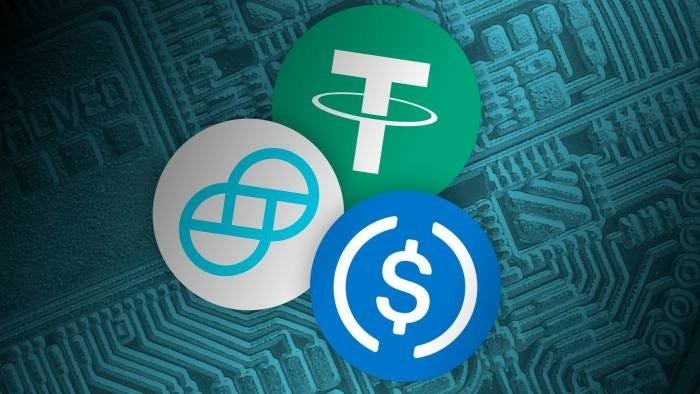
Stablecoins are changing the way real estate transactions happen. These digital assets offer price stability and quick settlements. Unlike traditional cryptocurrencies, stablecoins are pegged to fiat currencies or assets. This ensures minimal volatility, making them ideal for high-value transactions like property deals.
The Role of Stablecoins in Real Estate
Real estate transactions often involve multiple parties, intermediaries, and long processing times. Buyers and sellers deal with banks, escrow services, and legal procedures. These steps increase costs and slow down the process.
Stablecoins remove many of these inefficiencies. They enable direct, peer-to-peer transactions on blockchain networks. With smart contracts, parties can automate payments, ensuring secure and transparent property transfers. This reduces fraud risks and speeds up settlement times.
A Token Development Company plays a crucial role in this transformation. These companies create stablecoin solutions tailored for real estate platforms. They develop smart contracts, integrate payment gateways, and ensure regulatory compliance. As a result, investors and homebuyers experience a streamlined purchasing process.
Faster Transactions and Reduced Costs
Traditional property transactions can take weeks or even months. Banks process mortgage approvals, wire transfers, and escrow services. Each step adds delays and transaction fees. Stablecoins cut out these intermediaries, allowing payments to settle in minutes.
With blockchain-based transactions, buyers send stablecoins directly to sellers. Smart contracts execute automatically when predefined conditions are met. This eliminates the need for third-party verification, reducing closing times significantly.
Transaction fees also decrease. Banks and payment processors charge significant fees for cross-border transactions. Stablecoins minimize these costs, making international real estate deals more affordable.
Security and Transparency in Real Estate Payments
Fraud is a major concern in real estate. Fake property listings, double-selling, and identity theft create risks for buyers and sellers. Blockchain technology addresses these issues by providing an immutable ledger.
Each transaction is recorded on a decentralized network. Once recorded, the data cannot be altered or deleted. This ensures transparency and prevents disputes. Buyers can verify property ownership and transaction history before making payments.
A Crypto Token Development project can enhance security further. Developers build stablecoin wallets with multi-signature authentication and biometric security. These features protect user funds from unauthorized access.
Smart contracts also reduce human error and manipulation. The contract only executes when all conditions are met. This eliminates the risk of fraud or accidental overpayments.
Global Real Estate Accessibility with Stablecoins
Real estate markets vary by region. Some countries have strict currency controls, making it hard for foreign investors to buy property. Exchange rate fluctuations also impact international transactions.
Stablecoins remove these barriers. Investors can use digital assets pegged to a stable fiat currency, avoiding exchange rate risks. This makes cross-border real estate investments more predictable and accessible.
A Token Development Company can create region-specific stablecoins to match different real estate markets. This allows investors to purchase properties in their preferred currency without conversion hassles.
Developers also integrate stablecoins with real estate platforms. Users can browse listings, verify ownership, and make payments seamlessly. These innovations make property investments more accessible for global buyers.
Regulatory Challenges and Compliance Considerations
Stablecoins in real estate bring regulatory challenges. Governments monitor digital transactions to prevent money laundering and tax evasion. Property transactions involving stablecoins must comply with local financial laws.
A Crypto Token Development firm helps ensure compliance. They implement KYC (Know Your Customer) and AML (Anti-Money Laundering) protocols. These processes verify user identities and track transactions to meet legal requirements.
Regulations around stablecoins continue to evolve. Some countries recognize them as legal payment methods, while others impose restrictions. Real estate platforms must work with legal experts to navigate compliance challenges.
The Future of Stablecoin Adoption in Real Estate
Stablecoins are gaining traction in real estate. More property sellers accept them as payment. Real estate firms integrate blockchain-based transactions into their platforms.
As adoption grows, new opportunities emerge. Developers explore tokenized real estate, where properties are divided into digital shares. Investors can buy and trade these shares, increasing market liquidity.
A Token Development Company plays a key role in this evolution. They create digital assets that represent property ownership. These tokens are traded on blockchain platforms, allowing fractional ownership.
Government regulations will shape future adoption. As legal frameworks become clearer, more real estate businesses will integrate stablecoins. This will create a more efficient and secure property market.
Conclusion
Stablecoins are transforming real estate transactions. They enable fast, secure, and cost-effective payments. Blockchain technology ensures transparency, reducing fraud risks.
A Crypto Token Development strategy enhances these benefits. Developers create secure wallets, smart contracts, and compliance systems. This makes stablecoin-based real estate transactions more practical and scalable.
As the industry evolves, stablecoins will become a standard payment method in property deals. Investors, buyers, and sellers will benefit from faster transactions and lower costs. The future of real estate is digital, and stablecoins are leading the way.



